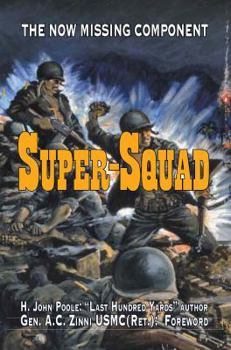Super-Squad: The Now Missing Component
Select Format
Select Condition 
Book Overview
No Synopsis Available.
Format:Paperback
Language:English
ISBN:0981865968
ISBN13:9780981865966
Release Date:February 2020
Publisher:Posterity Press (NC)
Length:496 Pages
Weight:1.55 lbs.
Dimensions:5.5" x 1.5" x 8.5"
More by Rebecca Jones
Customer Reviews
0 customer rating | 0 review
There are currently no reviews. Be the first to review this work.






















